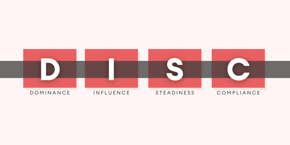It’s often said that it costs at least 5 times as much to find and acquire a new customer than it does to keep an old one.
The figure must be much higher, however, in the office supplies industry; orders are usually in high quantities, which means, for example, that a small price change from 9 pence to 8 can see huge savings for a company. This in turn makes loyalty about as cheap as a pack of 100 biros.
Luckily for all the office supplies salespeople out there, this is a problem that can be solved.
Sales in the industry don’t have to be the same old tug of war between getting new customers and keeping old ones.
1. Strengthen the bond
Sometimes, you should see cross-selling as a tool to build loyalty and protect your market share as much as to boost sales. In fact, cross-selling can be a great tactic for boosting customer loyalty, particularly in the office supplies industry.
I recently wrote an article on cross-selling and how to implement the tactic into your business.
Say, for example, one of your customer’s orders has been slowing down over the last few months. You can quickly nip this in the bud by making them a cross-sell offer that’s too good to turn down.
The reason that this strategy is so good in the office supplies industry is that there are so many strong, complementary cross-sells that can be made, as large quantities of all sorts of products are made on a monthly basis.
“Purchase X amount of ink and we’ll give you X amount of paper at a discount.”
Even if they see the ink on sale one month with one of your competitors, they know that taking their business elsewhere means they’ll lose the great deal on paper that they get from you.
Even if you don’t make anywhere near as much on the paper, for example, as you may usually, this ‘loss leader’ tactic will mean you keep selling the more expensive product for longer, making you much more in the long run.
This tactic is also great for boosting loyalty because it shows a customer that you actually think about them and understand their business.
2. Touch base
One great way to boost loyalty with existing customers is to have your marketing department send out newsletters from each of the salespeople in your team, going to each of the accounts they look after.
Doing this every month, with a small, personal paragraph written by the relevant salesperson at the start and monthly offers throughout the email is a great way to keep in touch with your customer base.
Even if (as it would need to be) the email is sent out in bulk through an email marketing system, sending a personal paragraph about some of “my best deals this month” directly to the customer, which addresses them by their first name, will make them feel valued at the very least.
This sort of monthly tactic acts, if nothing else, acts as a touch point so that your customers remember who they buy their office products from each month.
3. Be a person, not just a tweet
It’s great that your company has a Twitter account; it’s a vital tool for keeping people in the know about who your company is.
Many companies, however, think that Twitter and other social outlets are replacements for real conversation, but they’re not, they’re complementary.
When used correctly, the combination of social updates and real conversation can be used to great effect. But you can’t assume that your customers have seen your newest product or latest deal online; they’re probably too busy to have.
Your best bet is to call as well, just in case. It’s ironic that in a world in which communication is easier than ever, we often fail to do the simple things right. Make sure that you offer a real, personal service both before and after the sale in order to keep the customer on board.
If they want to stay up-to-date with your company by checking your social outlets, that’s great, but never assume that they have; calling is still as important as it’s ever been.
4. Fill your net
It’s true that there’s always a bigger fish, but there’s no need to go all Moby Dick on your customer base and focus solely on the whales of the industry.
Filling your fishing net with a school of SMEs is much better than harpooning a few large accounts.
Why?
Well firstly, from your point of view, if 1 of the larger customers decides to jump ship, you’re likely to take a huge financial hit. Losing 1 of many customers, however, isn’t anywhere near as big a deal.
Secondly, fish love to talk. Well, they don’t actually, but your customers do. The more customers you have, the faster your reputation as the go-to person in the industry will grow, and having a strong reputation is an important factor in deciding whether customers stay or go.
Just remember the big fish, little fish, cardboard box rule: if the big fish outweigh the little fish, you’re far more likely to be leaving with your things in a cardboard box.
5. Good content = content customers
Sales and marketing are two sides of the same coin. If you don’t work closely with your marketing department, you’re missing a huge trick in using content to keep customers on board for longer. And if you don’t have a marketing team, you absolutely need at least an agency.
Work with your marketing team to create some downloadable guides on key problems your customers are likely to face. Of course, keep it office industry-related, but talk about how companies can be more Green and efficient or can save money on their office supplies.
The reason this can work so well is that salespeople, generally speaking, aren’t great writers, but have strong, inside knowledge with regard to their industries. The exact opposite can be said of most marketers, who are great at creating content, but don’t work as closely with their customers.
If your products fit the bill and can help to solve a problem, talk about them a little, but don’t push too hard; content should be an educational tool and not a sales pitch. If you try too hard to sell with content, everything you say loses credibility.
If, however, you can use your content to cement yourself as a thought leader in the industry, you seriously boost the loyalty of your customers who will think that there’s no point going elsewhere for their business because you truly know your stuff.
These guides can also, of course, be used as prospecting tools, but, in terms of loyalty, are a great way to show your customers that you know their industries inside-out and think about their problems on a daily basis.



